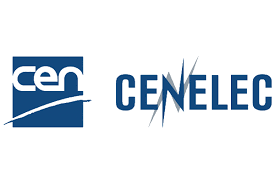EUDI-conformant & EBSI-compliant incentives framework to improve DGA's data
Identity Management
Token and asset creation and exchange
Use Cases
DLT as trust anchor infrastructure
The European Data Governance Act (DGA), introduced in May 2022 and in force since August 2023, aims at establishing mechanisms to reutilise certain categories of protected data within the public sector through a new model based on the principles of transparency and confidence to promote (i) circulation, exchange, and availability of certain protected data for its utilisation within public sector; (ii) confidence in data intermediaries services; (iii) and the sharing of data -free of cost- within the EU. The DGA is as ambitious as necessary but might fail due to the lack of incentives for the involved parties to perform and deliver on its purpose since it is easier not to reutilise rather than abiding to the sharing mechanisms it outlines.
At private level, it is widely accepted that good data governance is good for businesses, but companies and private organisations fail to implement it, for a number of reasons. Most acknowledged is its high costs while businesses struggle to leverage its benefits, not being able to optimise business processes and productivity and therefore not visualising the relationship between good data governance and business value. As described, in both, public and private data governance scenarios, incentive mechanisms would improve delivery and performance of data governance solutions.
ISO/TC 307/JWG 4: ISO/TR 23244:2020, ISO/TR 23249:2022, ISO/TR 23644:2023
ETSI GS PDL 011, ISO/TC 307/WG 3: ISO/TR 23455:2019, ISO/TC 307/WG 8:ISO/CD 20435, ISO/TC 307/WG 2: ISO/TR 23576:2020
DLT as a trust service
impact text
related
DLT as a trust service
Bio
Maria-Luisa Marsal Llacuna is an Architect (2001) with two Masters (2004, 2011) and two Doctorates (2008, 2013) in the fields of urban planning and applied ICT. Currently, she is an independent consultant on the so called ‘twin transition’, helping governments and the private sector to transition to green and digital models.
Previously she worked in the private sector as Technology and Standards lead at Centre Blockchain de Catalunya, Cambra de Comerç de Barcelona. Previously, she worked for governments in the UK and in Catalunya as smart cities and technology consultant, for Innovate UK and at Government’s of Catalonia Catalan Institute of Energy.
Before working for public administrations, she spent fifteen years in the academia, in different research and leadership roles in public universities. Her academic career includes the creation and direction of world’s first official scientific master’s program in smart cities; several competitive and commercial research projects in the domains of smart and sustainable cities; postdoc scholarships in Germany (2006) and the USA (2011); a US patent on urban planning standards technology; and, the publication as main author of about twenty papers in top peer-reviewed academic journals.
She served as UN Habitat III expert and she held two mandates as a chair at UN’s U4SSC initiative, with her second term focused on exploring blockchain applications for cities. She has been involved in standardisation activities since 2010, participating in different committees in UNE, CEN-Cenelec, ISO, IEC and ITU. She is and has served as reviewer and rapporteur in competitive EU calls within the FP7, H2020 and Horizon Europe programmes. She is accredited as EU research programmes assessor by ACCIÓ, Catalonia’s Innovation Agency.
Quote
The objective of this fellowship is therefore to produce a blockchain model inspired on the incentive’s framework for network maintenance of public blockchains, to next transpose it and adapt it for its use in the reimagining of data governance solutions, to improve its current low adoption and uptake in both, public and private implementations.

Title & Organisation Name: Independent Consultant and Researcher at TheTwinTransition
Country: Spain

